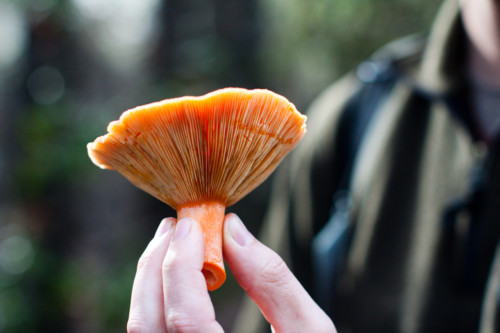How Amish Farmers Are Bringing “Organic” Back To Its Roots
In the last few years, the term “organic” has come under fire for its sometimes nebulous meaning and evasive requirements. Though organic has long been posited as the “alternative” to conventional farming, more and more small farmers are looking for alternatives to the now mainstream organic alternative.
Last year, GC spoke with David Falkowski, a mushroom farmer who has resisted having all of his crops officially certified organic. Over the course of the interview, Falkowski remarked that the USDA organic label “does not mandate the use of many things. For instance, a certified organic farmer is not mandated to use compost. They’re not mandated to use biologicals to control disease or pests. They would be limited to certain products to use to control pests and disease. But I try to explain to people– especially at the farmers market– that organic farmers are allowed to use pesticides, herbicides, fungicides, and even antibiotics.”
A recent article for The Atlantic pointed up a similar trend occurring among Amish farmers. The piece focuses on John Kempf, an Amish farmer and the founder of Advancing Eco Agriculture (a consulting firm that focuses heavily on the science of organic farming) and Samuel Zook, a fifth generation Amish homesteader and an avid follower of Kempf’s practices.
In an article for The Atlantic, Roc Morin examines Kempf’s game changing discovery that modern agriculture often neglects the immune systems of plants, an important part of pest resistance. As Morin writes:
“Modern agriculture uses fertilizer specifically to increase yields, [Kempf] added, with little awareness of the nutritional needs of other organic functions. Through plant sap analysis, Kempf has been able to discover deficiencies in important trace minerals which he can then introduce into the soil. With plants able to defend themselves, pesticides can be avoided, allowing the natural predators of pests to flourish.
According to Kempf, the methods he developed through experimentation on his Ohio farm are now being used across North and South America, Hawaii, Europe, and Africa. The entrepreneur promises clients higher-quality crops, bigger yields, better taste, and produce that carries a lucrative “organic” label. Kempf, however, considers his process as an important improvement upon standard organic farming methods. “Organic certification is a negative-process certification,” he explained, “You can do nothing to your field and become certified. In contrast, we focus on actively restoring the balance found in natural systems.”
To read the complete article, head to The Atlantic.



































